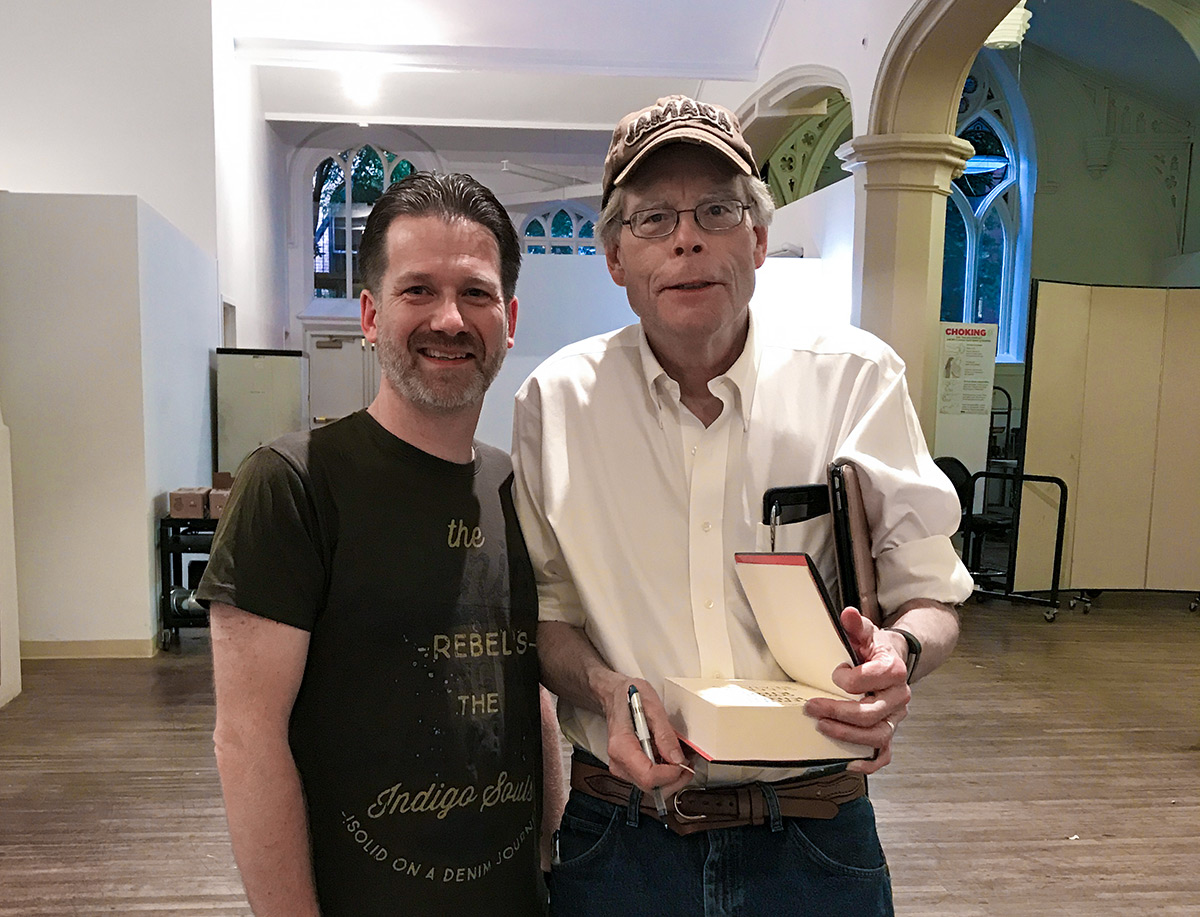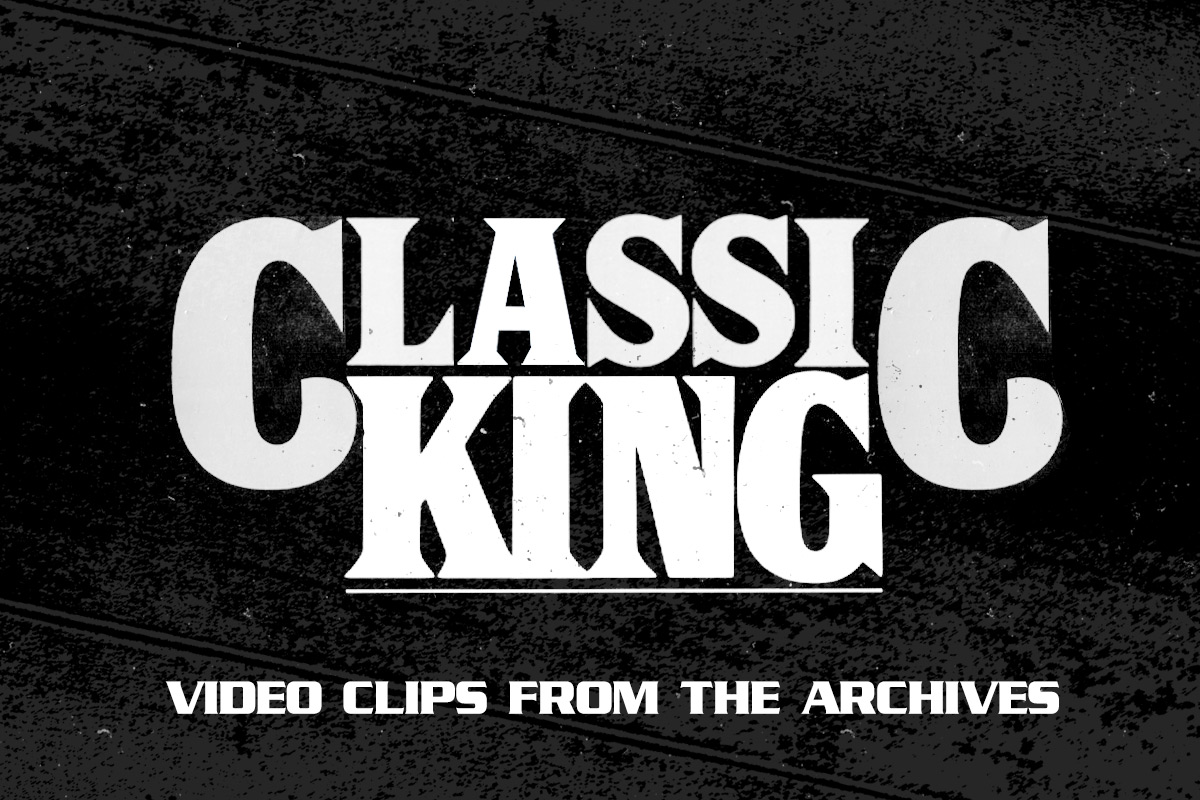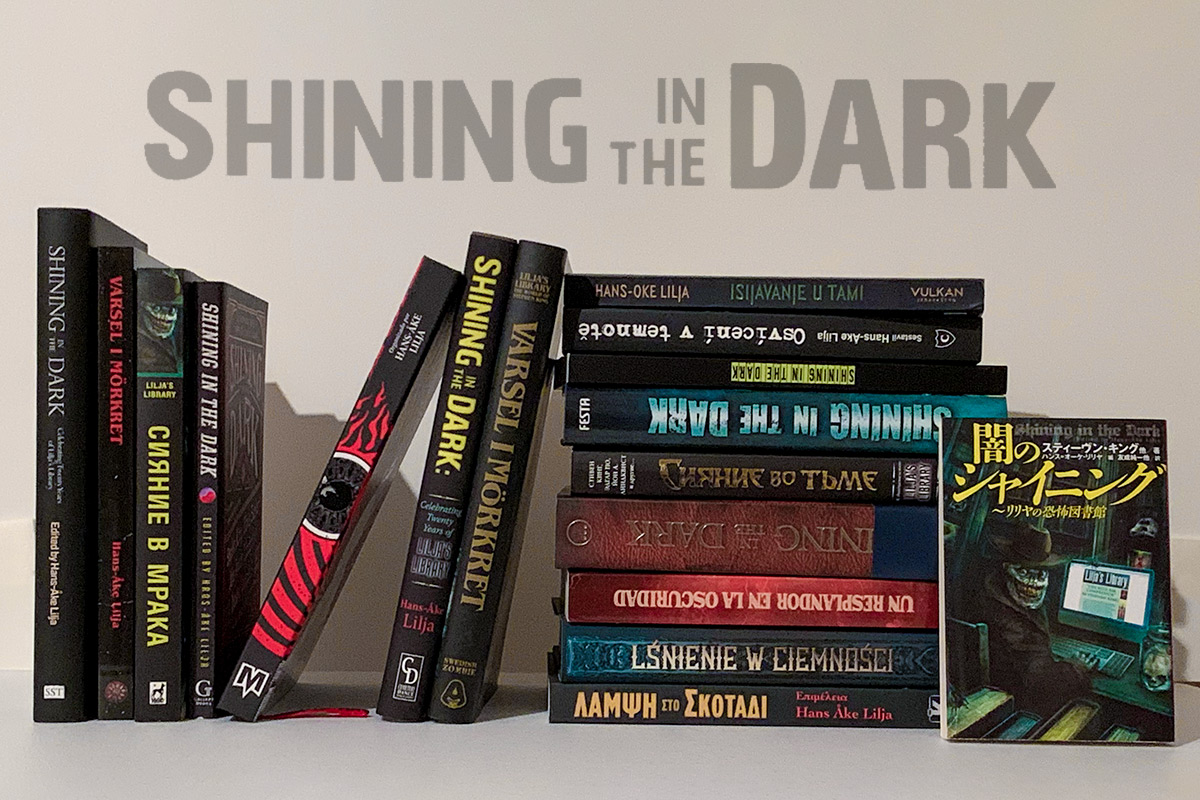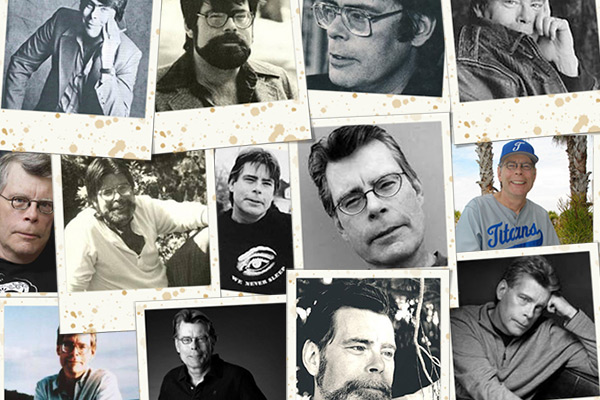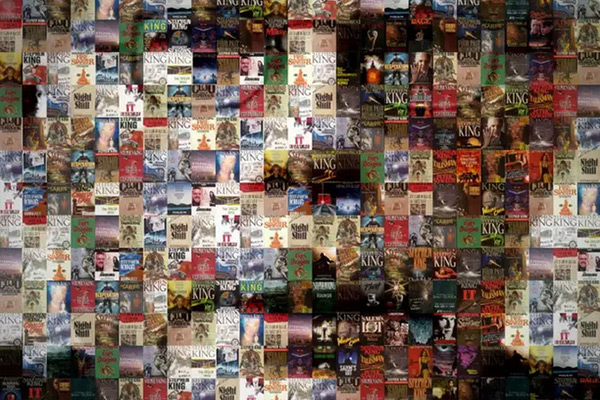Bridget Carpenter
Posted: March 17, 2016
_
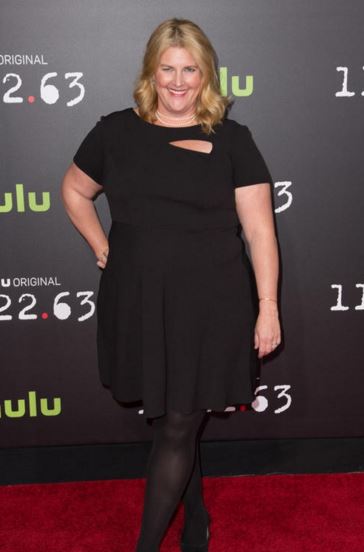 Here is an interview I did with 11.22.63 Showrunner Bridget Carpenter about the show and what it means to be a Showrunner. Continue reading to find out what she had to say.
Here is an interview I did with 11.22.63 Showrunner Bridget Carpenter about the show and what it means to be a Showrunner. Continue reading to find out what she had to say.Lilja: How did you get involved with 11.22.63?
Bridget Carpenter: I had read the book because I’m a huge fan, just for pleasure, about a year before Bad Robot called me. J.J. Abrams and his company Bad Robot had the rights to 11.22.63 and we know each other professional and they asked me to come in and talk about it and see if I had any ideas about adapting it. I did and they hired me.
Lilja: So they didn’t know you were a big fan of the book before they called you?
Bridget Carpenter: No. I don’t even know if they know I was a fan of Stephen King.
Lilja: What exactly did you do on the show?
Bridget Carpenter: I’m the writer, creator and creative producer. I wrote five out of the nine hour scripts and I hired everybody along with Stephen King, J.J. Abrams and Hulu so I’m what’s called the Showrunner.
Lilja: Ah, so it’s you that we have to thank for this good adaptation then?
Bridget Carpenter: I hope so yes.
Lilja: Where you involved in the daily work as well?
Bridget Carpenter: Yes, I was involved in every aspect of it. From writing the script to hiring the actors and directors to overseeing the music and special effects. Yeah, the Showrunner touches every part of the series.
Lilja: So you have been living with it for some time now then?
Bridget Carpenter: Yeah, almost two years.
Lilja: Amazing, are you tired of it?
Bridget Carpenter: Not at all! I can talk about conspiracy theories all day long [laugh]
Lilja: And you were involved with the casting as well?
Bridget Carpenter: Yes.
Lilja: Was it hard to find the right actors?
Bridget Carpenter: No, we have an incredible casting department and we got an Olympic cast of actors, really just the top of the top. It’s always nerve-racking to look for the right people but I’m happy to say we found all of them.
Lilja: Yes, I think you succeeded very well with the casting.
Bridget Carpenter: Oh, good.
Lilja: About the part of Bill Turcotte. It’s much bigger than in the book. Can you tell me why that is?
Bridget Carpenter: Not only has he a bigger part, he is really an entire different character. He has a similar backstory to Bill Turcotte but in the book Bill is a 50-something years old man. He’s much older and he has an heart attack and then he has no further effect on Jake’s journey but my desire was to find Jake somebody to talk to because the book is such an internal experience and to dramatize you want dialog, you want people to be seeing what they are thinking rather than only thinking it. So I wanted to reshape Bill to be a sidekick.
Lilja: Also something that the fans of the book had been wishing for is that you would include the scene with Bev and Richie from the book IT. Was that ever something you considered?
Bridget Carpenter: It was not because again that is such a deep pleasure for readers of the book and people who know Stephen King’s universe but it does nothing to push the story forward in terms of Jake’s mission when you’re adapting it. It would seem like the story stopped. So I was not going to sacrifice the overall story for it. It was very sweet but it just wasn’t the right thing for this drama.
Lilja: Yeah, I agree. It would also probably only be the hardcore fans that understood the connection.
Bridget Carpenter: Yes.
Lilja: Was 11.22.63 hard to shoot because it’s based on true events about the JFK assassination? Did you feel you had to follow what happened in real life as much as possible or was that already covered in the book?
Bridget Carpenter: Yeah, it was a very hard shoot. Whenever you shoot something that’s period the details are very important and you can’t overlook anything. So you can’t go to any street anywhere and shoot. That street has to be dressed, designed and made look like it’s from that time and then you can start filming. So it’s an incredible level of art direction and detail and particularly when you’re talking about something that is so well documented as the assassination of President Kennedy and the events around Dealey Plaza
Lilja: I guess you looked at a lot of old photos and videos to recreate it accurately as possible?
Bridget Carpenter: Yeah thousands of them.
Lilja: Was it hard to get permission to shoot at the locations you wanted to shoot?
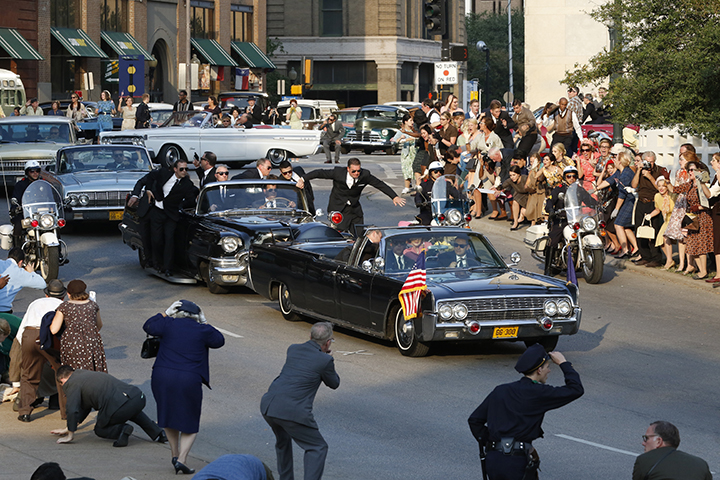
Bridget Carpenter: No, the Dallas film commission was very helpful to us and we got the right permits and then it’s just a matter of preparation and organization.
Lilja: How long did the motorcade scene take to shoot?
Bridget Carpenter: We shot in Dallas for one week and two days were devoted to the motorcade.
Lilja: And you had the whole area restricted during that time?
Bridget Carpenter: Yes, many blocks were shut down and restricted.
Lilja: How hard is it in situations like that to keep the public away? Is it often that they interrupt the filming?
Bridget Carpenter: No…we have a very active crew and also the police help to secure the sets so it’s not a big problem. Everyone is interested but not many ruin things.
Lilja: And you are a big fan of Stephen King and I understand he was on the set. How was it to meet him?
Bridget Carpenter: It was incredible. He was very generous and we had some meals together and we email each other frequently. It was the realization of a dream.
Lilja: Did he have a lot of input or objections to the changes you did?
Bridget Carpenter: He read everything and he had no objections. He knew about everything ahead of time and if he had had any objections I would have definitely listened but he was extremely supportive.

Lilja: Since this is such a thick book you had to leave some stuff out of the adaptation. What was the hardest thing to leave out and still keep it faithful?
Bridget Carpenter: It was just making sure the sense of the piece and urgency was there because it begins with a very urgent drive, an important urgent directive which is; save the President. The book takes its own time. It’s a book so you can have your own experience reading it but when you do something that goes episode by episode each episode has to have urgency and drive so it’s just keeping the right events from the book and making sure that all the characters feel as fully as they do in the book.
Lilja: One thing I was worried about before I saw the series was the scenes where Jake is going from the present to the past through the Rabbit Hole. Was the way it turned out, that you see him kind of falling into the past and then we don’t see how he gets back at all, your number one idea on how to shoot this or did you try different ways for it?
Bridget Carpenter: That was the one and only idea I wanted to do. I was not interested in anything with special effects because the book is very much about describing him just walking down steps, it’s not about the bells and whistles and special effects so I wanted how he got from one place to the other as ordinary as possible.
Lilja: One thing that a lot of fans are worried about is that there will be another season of 11.22.63 and that it will be dragged out and ruined.
Bridget Carpenter: No, it’s over. It’s what’s called an event series and it’s done.
Lilja: So there were never any pressure from the studio that if it was a success they wanted to keep it going?
Bridget Carpenter: No. I think that if I had said “I know a way to continue it” everyone would have said “yes” but I did not believe it should be continued.
Lilja: Thank you so much for taking the time to speak to me. It was very interesting.

